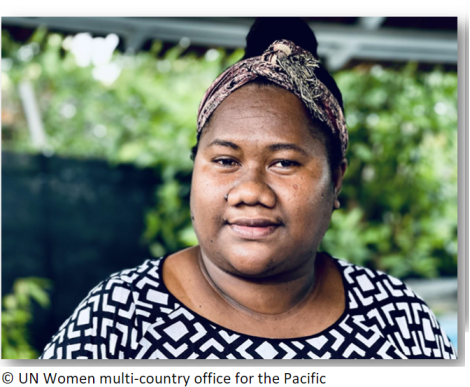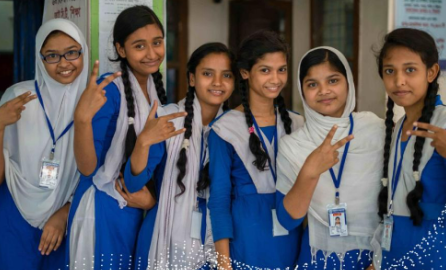The Pacific Partnership ending gender-based violence

-
Gender marker: G2-Promotes gender equality as a primary objective
-
Period of implementation: 2018 - 2023
-
Amount: EUR 12,700,000 (EU contribution)
-
Geographical area: Asia and the Pacific
-
Implementing partners:
-
Links to the project:
-
GAP III’s Areas:
-
Gender-based violence
-
Sexual and reproductive health and rights
-
Economic and social empowerment
-
Gender equality, awareness and practice of respectful relationships takes work. Unfortunately, the Pacific region has some of the highest recorded rates of violence against women in the world – twice the global average, with an estimated two in every three Pacific women experiencing gender-based violence (GBV). This is coupled with inequalities, including low levels of participation in decision-making, limited economic opportunities and restricted access to basic services and rights.
To this end, the Pacific Partnership to End Violence Against Women and Girls aims to transform the social norms that allow this violence to continue. It also seeks to ensure that survivors have access to quality response services and that national and regional institutions meet their commitments in this area. Implementing partners are working in Fiji, Kiribati, Papua New Guinea, Republic of the Marshall Islands, Samoa, Solomon Islands, Tonga, Tuvalu, and Vanuatu.
The project intends to accomplish its goals through a three-pronged approach, hitting harmful social norms at the personal, community and institutional level:
-
Formal and informal education. These actions contribute towards shaping children and youth’s notions of gender equality and GBV, to enhance their awareness and practice of respectful relationships and gender equality concepts. Activities will target boys and girls in primary schools through formal education. It will also target young women and men aged 15-25 through informal education, mostly based on a peer-to-peer approach.
-
Contextualised, community-based prevention approaches and access to quality multisectoral services for survivors of violence. The action will seek to change harmful social norms at community and individual levels, leading to reduced rates of physical and sexual violence.
-
Establish accountability mechanisms for gender and GBV commitments and policies at national and regional levels. The action will support civil society by enhancing their capacity to track gender equality and policy implementation, plus increase resources to act on their findings to advocate for improvements.
In 2018 (at the inception of the programme), while there was some commitment and political will to reform laws and policies, this had not yet been translated into tailored, comprehensive approaches tackling harmful social norms across the region. This was therefore a transformative project for education, building grassroots support and strengthening the institutional background and support for tackling this problem. Over the years, Pacific Partnership has leveraged the experiences and expertise available to reach the most vulnerable. While the issues of gender-based violence still persist in the Pacific, these actions have helped instructions and civil society organisations to work towards ending all forms of violence.
“The work that Seif Ples does is critical. It fills the gap for survivors of gender-based violence who need urgent support in terms of care and shelter. If we don’t do this work, then who will? We must all do our part.” Ms Lorah Etega, the administration, finance and data officer at the Seif Ples Gender-Based Violence Crisis and Referral Centre, based in Honiara.
